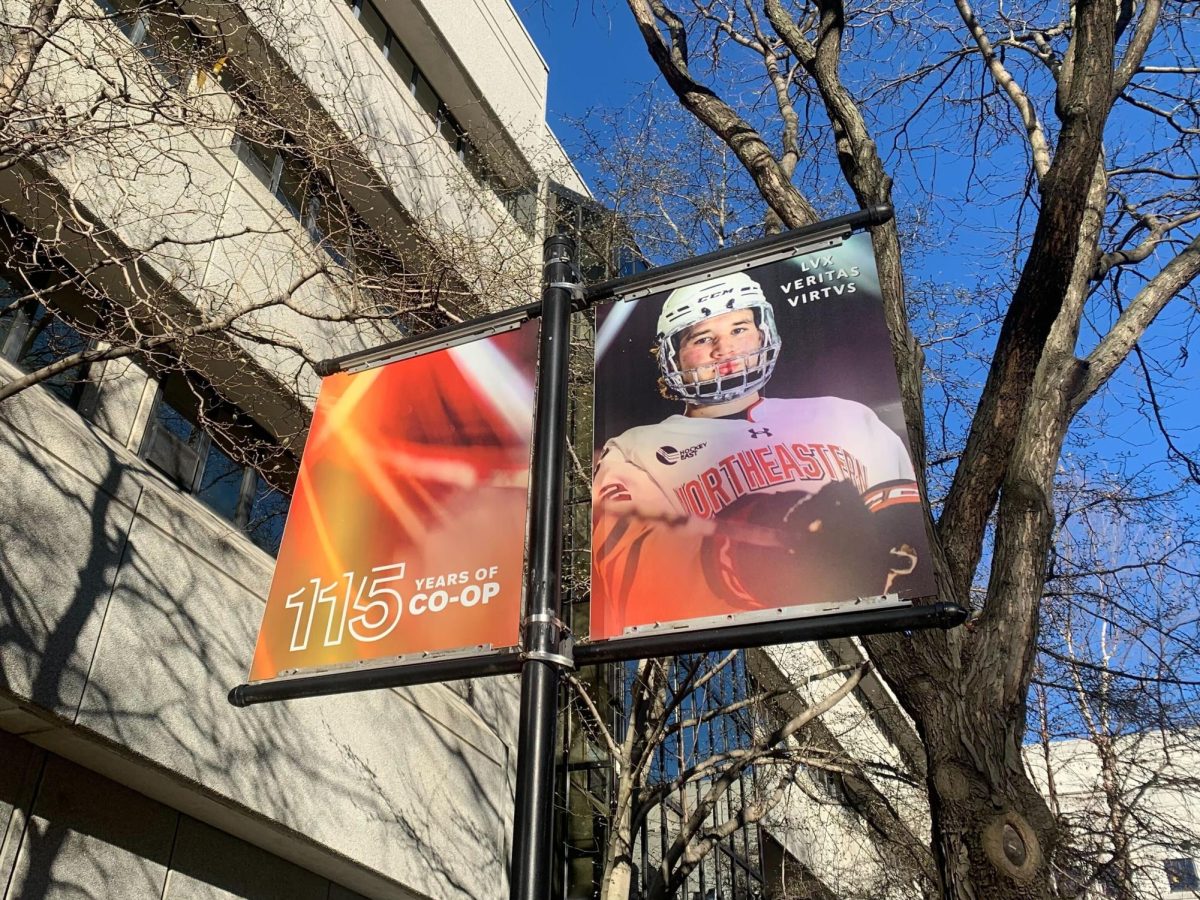By Mary Whitfill, News Staff
Local residents, city officials and Northeastern administrators discussed the university’s next Institutional Master Plan (IMP) on Tuesday, touching on how the school plans to benefit the community and manage problems related to off-campus living.
Northeastern filed its Institutional Master Plan Notification Form (IMPNF) in December. The master plan is a document that guides the college’s development, both physically and philosophically, over roughly the next decade.
Ralph Martin, senior vice president and general counsel for Northeastern, gave a six-part presentation on an “array of community benefits” that the proposed IMP might bring.
“One of the things Northeastern has expressed an aspiration to develop with the city and with the Community Task Force are community benefit programs that are sustainable and have an impact,” Martin said. “We want to develop programs with mutual benefit. Benefit to surrounding neighborhoods, benefits to populations that perhaps have not benefited as fully from a relationship with Northeastern and benefits that Northeastern can commit to over a substantial period of time.”
First, the attendees discussed how Northeastern can increase its use of local and minority vendors, contributing to local procurement and employment in Boston. Of the 3,900 people employed by the university, only 900 are registered residents of the city of Boston and, according to Martin, NU is looking to increase and improve its use of local and minority contractors.
“We are making some progress in ensuring that we promote the hiring of minorities within the state,” Boston City Councilor Michael Ross said. “The goals of the Boston Residents Job Policy is to employ 50 percent people from Boston, 25 percent people of color and 10 percent women.”
In efforts to improve the state of Carter Field, a sports field and playground area on Columbus Avenue, the IMPNF proposed that the Camden Parking Lot be demolished for additional recreational space. This development, according to Martin, would cost more than $10 million.
“This is not something of which Northeastern would take control, we would still operate under the City of Boston permit process, but we would add the land that we currently have to create a larger playing surface and more fields,” Martin said. “If you have ever been out to the current Carter Playground, you would see that it is, at best, in disheveled condition. We have already begun to discuss this with many of the groups that currently use the field and there is a lot of support for that potential conversion.”
Based on community outreach programs already in place across the Charles River at Harvard University, Martin pitched the idea of a University Hub, a central place where members of the community could access information about job opportunities, community programing, cultural events and other elements concerning life on Northeastern’s campus.
The fourth piece of the presentation was a Revolving Loan Fund, an idea that came from past meetings of the Community Task Force, which includes residents of the the Fenway, Mission Hill, Roxbury and the South End.
“Some people have talked about the desire to help capitalize on affordable housing, other people have talked about giving businesses expansion capital and others have mentioned microfinancing,” Martin said. “[The fund] would enable business proximate to Northeastern, to develop capital. We see this as something that could be sustainable, impactful and mutually beneficial.”
Next was the idea of developing a neighborhood council to engage people from surrounding communities at the conclusion of the current Task Force.
The neighborhood council would meet with school officials on a regular basis to discuss the impact the IMP is having on the area, as well as to foster communication between the university and the neighborhoods that surround the main campus.
Martin also discussed Parcel 3, a year-old conversation focused on the building of an office tower of which NU would be the primary, if not sole, occupant. The property sits across from Boston police headquarters on Tremont Street. The development of Parcel 3 would cost tens of millions of dollars and, according to Martin, would fulfill the need for office space required for NU to operate at its most efficient level.
“We can’t do all of these things, and we certainly can’t do all of them at once,” Martin said. “What we will continue to discuss is which of these we could tackle most immediately and which would have the most impact. Many of these things have a large price tag fixed to them.”
Following the community impact presentation, Boston Redevelopment Authority Senior Project Manager Gerald Autler shared plans for developing the Northeastern Housing Impact Study to assess the impact of off-campus undergraduates on their community. Taking cues from a 2008 study completed by Boston College, NU would hire outside analysts to conduct the study.
“We really want to look at Northeastern student residence trends,” Autler said. “We will spend time looking at how the total number of undergraduate students on and off campus is fluctuating and how that affects the different areas surrounding NU. [In the BC study the researcher] was able to come up with a serious estimate for what types of units and where are most likely to be occupied by BC students. Then [the researcher] came up with an estimated impact of those students per unit type. We want to do that for Northeastern.”
The key goals of the study were stated to be: gaining a baseline understanding of the current housing stocks and markets, an understanding of how undergraduates affect housing price, analyzing key trends and forces in the housing market, estimating how NU’s IMP proposals will affect market conditions and understanding student resident trends.
“At the end of the study we would want some conclusions as to what this all means,” Autler said. “Particularly an answer to the question: what is the degree to which Northeastern undergraduates are contributing to some of the housing trends we are seeing.”
The next IMP meeting is tentatively scheduled for March 28.








